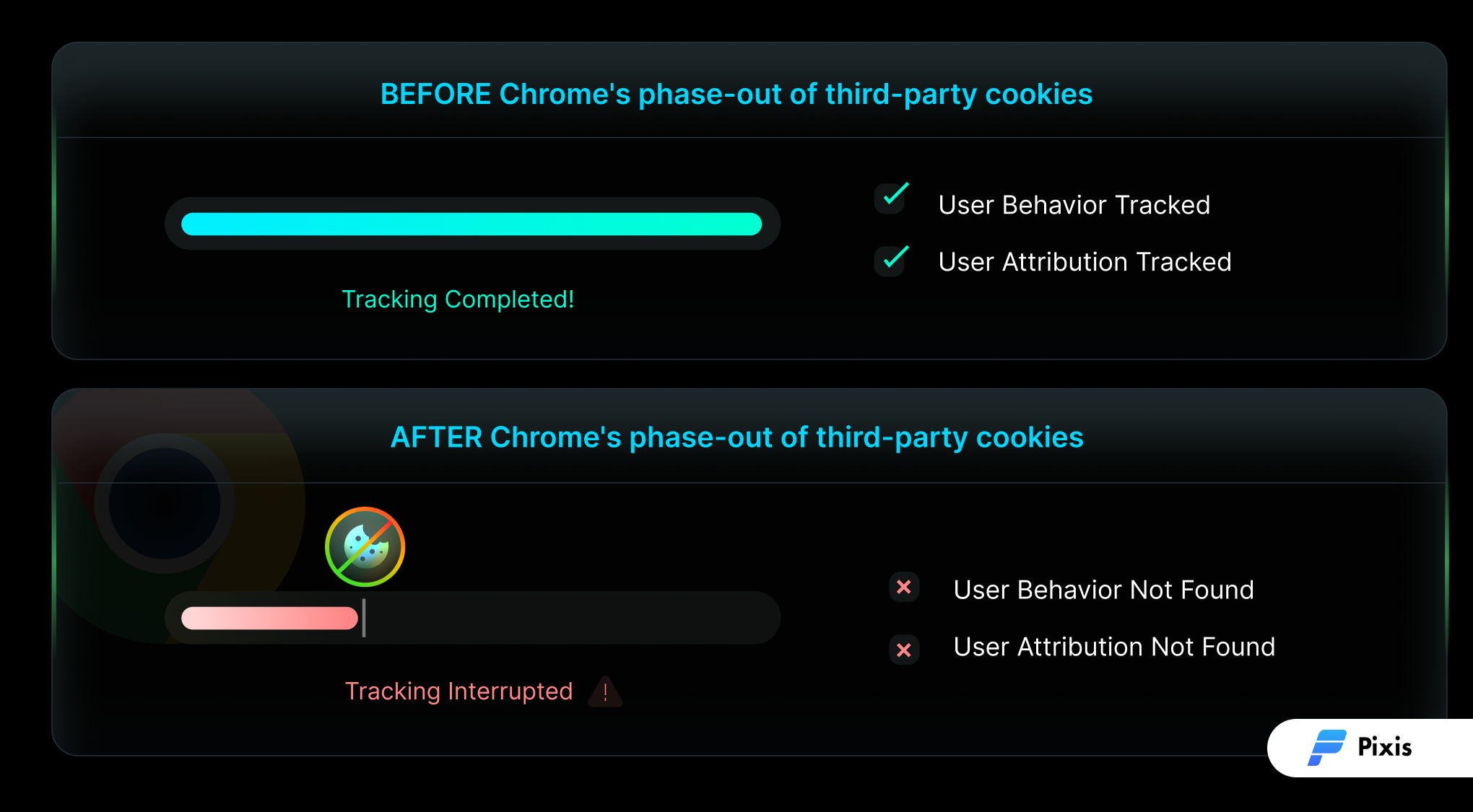Finding Chrome’s 30 Million Cookieless Users with AI
Google has initiated the first steps toward a cookie-less future in Chrome by beginning with a pilot phase. Last month, the company deactivated cookies for approximately 30 million Chrome users, representing 1% of the total user base. This action is a key part of Google’s larger plan to completely phase out third-party cookies by mid-2024, aiming to address privacy concerns without disrupting the digital advertising ecosystem. The gradual phase-out is designed to test and adjust the impact on both users and developers, ensuring a smooth transition to Google’s Privacy Sandbox. This initiative proposes a more privacy-conscious approach to online advertising, offering alternatives that allow for interest management and grouping users into cohorts based on similar browsing patterns, thereby marking a significant shift in how user data is handled across the web.
Despite these efforts and the clear direction toward a cookie-less future, a significant portion of the industry has been slow to adapt to the impending changes. Many brands and marketers continued to rely heavily on third-party cookies for advertising up until the last quarter of the previous year, indicating a lag in the adoption of new strategies and technologies. With Google planning to extend the cookie restrictions to all Chrome users by Q3 2024, the urgency for marketers to develop and implement alternative advertising strategies becomes more pressing. This transition challenges the industry to innovate and explore new methods for targeting and understanding user behavior, emphasizing the need for a shift towards first-party data, contextual advertising, and AI-driven insights to maintain relevance in a rapidly evolving digital advertising space.
The Impact of Chrome’s Phase-Out on Marketing
Google Chrome’s phase-out of third-party cookies significantly impacts digital marketing, particularly in tracking user behavior and attribution. Without third-party cookies, personalizing ads becomes challenging and could increase ad costs to reach the right audience. Additionally, attribution—understanding which ads convert audiences on specific platforms—becomes difficult, complicating the development of cost-effective cross-platform advertising strategies. Marketers must find new methods to achieve these goals while respecting user privacy.

What does this mean for you?
With the transition away from third-party cookies, businesses are confronted with the challenge of adapting to a cookieless world, where privacy concerns and data protection are paramount. This fundamental shift poses questions about the future of tracking user behavior and accurately attributing market efforts across various platforms. As businesses grapple with these changes, Pixis emerges as a stepping stone to innovation, offering AI-driven solutions that pave the way for effective marketing in a post-cookie era.
Here’s what this evolution means for you in the context of leveraging Pixis AI:
Tracking and Understanding User Behaviour Without Cookies: Pixis AI’s foundation on tracking and understanding user behavior without reliance on third-party cookies positions it uniquely in the evolving digital marketing landscape. From the start, Pixis has been designed with privacy and data protection at its core, utilizing proprietary AI technologies that ensure compliance with regulations while maintaining a deep insight into user behaviors and preferences. This approach allows for the continued effectiveness of marketing strategies through personalized and targeted campaigns, even as the industry shifts away from traditional cookie-based tracking methods. For businesses, this means that Pixis AI offers a robust solution for navigating the post-cookie world, enabling them to refine cross-platform strategies, allocate budgets with precision, and maintain competitive advantage, all while upholding the highest standards of user privacy and trust.
Clear Information on Attribution Without Cookies: Pixis AI provides clear and comprehensive information on attribution, even in the absence of cookies. This clarity is instrumental for businesses to refine their cross-platform strategies and allocate budgets more effectively. With Pixis AI, you’re equipped to identify which channels and tactics are driving conversions and engagement, allowing for data-driven decisions that optimize ROI across all marketing platforms. This not only enhances efficiency but also ensures that marketing investments are directed toward the most impactful activities.
Pixis’s solutions directly address the challenges of tracking user behavior and attribution in a post-cookie world. By leveraging advanced AI for audience insights without cookies, Pixis enables precise targeting and personalization using first-party and anonymized data. Additionally, its platform enhances ad performance by dynamically adjusting campaigns in real time, ensuring efficiency and effectiveness even without granular tracking from third-party cookies. This approach provides a robust framework for marketers to navigate the complexities of modern digital advertising while respecting user privacy.
Conclusion
As we navigate this transition, the partnership with a technology provider like Pixis becomes invaluable. Pixis’s AI-driven platform empowers marketers to thrive in a post-cookie world, offering innovative tools and strategies that respect user privacy while delivering on the promise of effective, data-driven marketing. Embracing these changes with Pixis, businesses can look forward to a future where marketing is not only more privacy-centric but also more personal, predictive, and powerful.




